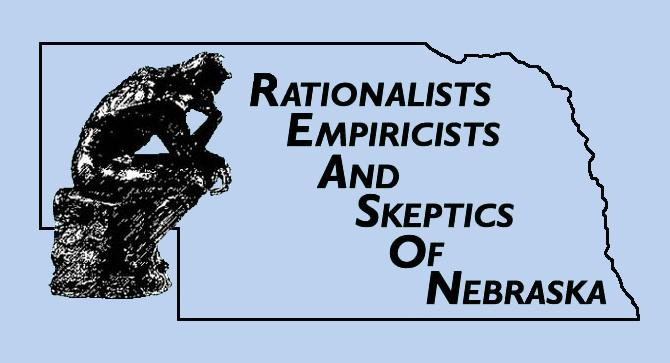Exploring Science and Medical Discoveries: Evolution
Clay Farris Naff, Book Editor (Amazon)
ContentsChapter 1: Origins of a Theory
Foreword
Introduction
By Clay Farris Naff
1. Ancient Greek Speculations on the Origins of LifeChapter 2: The Modern Theory and Its Evidence
By G.E.R. LloydPhilosophers of ancient Greece attempted to come up with natural explanations for the origin and diversity of life. Some hit on ideas that came close to the modern theory of evolution.2. The Other Darwin
by Erasmus DarwinLong before Charles Darwin published his theory of evolution by natural selection, his grandfather Erasmus laid some foundations for the theory with a book of his own.3. Lamarck Makes a False Start
By Michael RuseAmong the most influential of Darwin's contemporaries was the French biologist Jean-Baptiste Lamarck. He believed that over time creatures acquired characteristics that allowed them to progress up the scale from lower to more complex life forms.4. Darwin's Voyage of Discovery
by Jonathan WeinerCharles Darwin's theory of evolution had its roots in a journey around the world aboard the HMS Beagle. He served as the ship's naturalist, collecting specimens of plants and animals, especially from the Galapagos Islands.5. How Life Diversifies
by Charles DarwinThe explanation for life's diversity, according to this excerpt from Origin of Species, lies in natural selection. Competition for survival means that those individuals with the best adapted traits win out over others and pass along their traits to the next generation.6. Darwin's Doppelganger
by Bert James LoewenbergThe theory of evolution for which Charles Darwin is remembered also occurred almost simultaneously to a man now nearly forgotten. Alfred Russel Wallace's parallel writings prompted Darwin to speed up the completion of his book Origin of Species.7. The Threat of Darwinism
By William Jennings BryanA prosecutor in the 1925 " Scopes Monkey Trial" explains why he considers teaching evolution in public schools a dangerous mistake
1. An Introduction to Modern Evolutionary BiologyChapter 3: Contemporary Controversies
By Chris ColbyAn understanding of genes has transformed the modern understanding of evolution. Mutations in the genetic code produce variations within a species that enable some individuals to adapt better than others, thereby assuring the spread of the mutant genes in the next generation.2. Evidence for Evolution
By the National Academy of SciencesAccording to the nation's leading scientific organization, various lines of evidence, from fossils to DNA analysis, confirm the theory of evolution.3. How Evolution Achieves the Improbable
By Richard DawkinsA zoologist who has helped to modernize Darwin's theory explains how complex organs such as the eye can develop through variation and natural selection. Small beneficial mutations passed down to future generations can, he says, eventually produce such amazing structures.4. How Early Bacteria Jump-Started Evolution
By Lynn Margulis and Dorion SaganA renowned biologist and her son describe the profound influence bacteria have had on the course of evolution. Starting about 2 billion years ago, certain microbes began to use water for fuel, and in the process, they transformed the earth's atmosphere and gave evolution a boost.5. Tracing Humanity's Origins
By Richard Leakey and Roger LewinA famed fossil hunter and his coauthor describe the search for humanity's origins among hominid fossils. They conclude that humans, along with gorillas, and chimpanzees, are members of the ape family.
1. Evolution Is UnscientificChapter 4: New Currents in Evolution
By Duane GishA leading the exponent of biblical Creationism explains why in his view the theory of evolution is unscientific. No one observed evolutionary processes at work, he contends, and the fossil record fails to support the theory.2. Evolution is a Creation Myth
By Phillip JohnsonScientists who buy into evolution's basic assumptions are swallowing a creation myth, argues a law professor who is a leader of the intelligent design movement.3. Evolution Is Scientific
By Robert PennockA philosopher and biologist says creationist arguments against evolution miss the mark. In particular, he says, those who call evolution "only" a theory fail to recognize that in science a theory is not a guess but a tested explanation for a body of related facts.4. Creationist Arguments Against Evolution Are False
By Niles EldredgeA curator at a leading natural history museum explains why he feels that a wide variety of creationist attacks on evolution have failed to undermine the theory.
1. Sex and Evolution
By Matt RidleyThe longstanding puzzle of why so many species reproduce sexually may have been solved. The "Red Queen" theory explains how the advantage of shuffling genes through sex outweighs its costs.2. How Mothers Shape Evolution
By Sarah Blaffer HrdyTraditional science has had an unfortunate tendency to focus almost exclusively on the behavior of males to explain evolutionary processes. A feminist anthropologist argues that female instincts and choices are at least as important in evolutionary history.3. Evolutionary Medicine
By Randolph Nesse and George C. WilliamsA physician and a famed evolutionary biologist describe how medicine has begun to make use of evolutionary insights into pathogens as a basis for new medical strategies.
Bibliography
